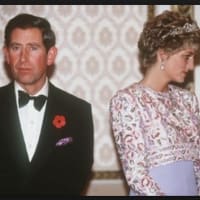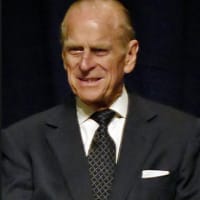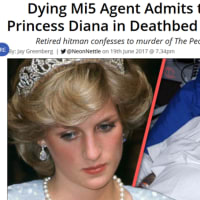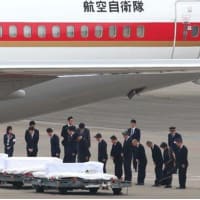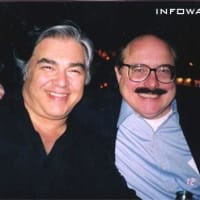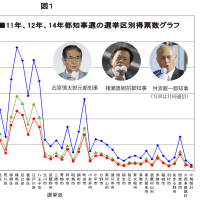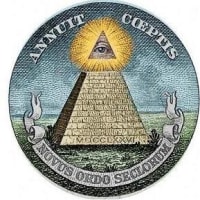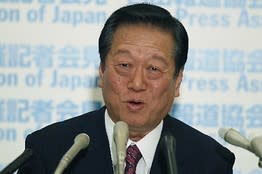
Former representative of the Democratic Party of Japan Ichiro Ozawa is talking about "Fear and truth" to an overseas media.
Because actual political power of Prime Minister Naoto Kan and a major mass communication are throwing informations on the lie,
Japanese citizen doesn't know that the Fukushima nuclear accident is much morea serious than the Chernobyl accident in 1986.
Please see the Ichioro Ozawa's interview video with Th Wall Street Journal.
He talked about "Fear and truth" which Japanese mass- meddia has never communicated.
Ichiro Ozawa's interview video
You overseas cityzen ,please read carefully the following interview and diffuse the informations.
▼ Japan's Ozawa Challenges Kan Over Crisis
By YUKA HAYASHI And TOKO SEKIGUCHI
27tn 05 2011 The Wallsreet Journal Asia
http://online.wsj.com/article/SB10001424052702304066504576347154161664990.html?mod=WSJASIA_hpp_MIDDLEThirdNews
TOKYO—Ichiro Ozawa, the political power broker laid low by corruption charges, says he is ready to take on longtime party rival and sitting Japanese Prime Minister Naoto Kan for what he sees as the
government's mishandling of the continuing nuclear energy crisis.
In an interview with the WSJ, Ichiro Ozawa, former president of the ruling Democratic Party of Japan, speaks about the government's handling of the nuclear crisis, failing support for the DPJ and his own political future.
The brash statement by one of the nation's most controversial political figures has further exposed the deep split that has emerged within the ruling Democratic Party of Japan, even as the government grapples with trying to contain one of the most complex disasters ever to face the country and rebuild the struggling economy.
Despite being in the middle of preparing to defend himself over charges of misstating the financial statements of his fund-raising group, Mr. Ozawa told The Wall Street Journal in a rare interview that the prime minister should step down to pave the way for a new political era in Japan.
The veteran politician reiterated he had "done nothing wrong" and pledged to fight the criminal charges brought against him. He is awaiting trial, which is likely to start late this year.
Mr. Ozawa, who retains appeal to a certain segment of voters, said he wants to emerge from the scandal's shadow and serve as a catalyst for change, as he has done repeatedly over the past two decades in a roller-coaster political career.
"I was thinking about just fading away but now I feel I have a bit more work to do," Mr. Ozawa said, calling himself an old soldier, alluding to the words of U.S. Gen. Douglas MacArthur.
Mr. Ozawa, the former leader of the ruling party, said he believes that "anxiety and frustration are growing" among the Japanese people because of the government's inability to come up with effective solutions more than two months after a magnitude 9.0 earthquake and tsunami triggered the worst nuclear crisis since Chernobyl in 1986.
"If the prime minister cannot implement policies, it's meaningless for him to stay in power," Mr. Ozawa said. "I think the sooner he's replaced, the better."
Tetsuro Fukuyama, deputy chief cabinet secretary, said he was disappointed by Ozawa's remarks.
"Each politician has their own ideas, own views," Mr. Fukuyama said in Deauville, France, where he was accompanying Mr. Kan for the Group of Eight Summit. "But it is a bit disappointing," he added.
Despite the growing attack from the Ozawa sympathizers in the party, Mr. Kan himself has hinted he could offer a greater role for the senior politician in Japan's effort to rebuild the quake-damaged areas in the northeast, including Mr. Ozawa's own district.
Mr. Ozawa wouldn't say who should succeed Mr. Kan, nor would he confirm if he was himself interested in the post that has always eluded him.
But he was clear on the qualities he thinks are necessary. "This is a difficult time, a time of crisis. That's why we need to choose a leader who can withstand the hardship and an administration that can endure it."
Mr. Ozawa has largely stayed behind the scenes since he was indicted in January for his alleged violation of campaign-funds law. He spoke in his first interview with a mainstream media organization since September when he made a credible challenge against Mr. Kan for the prime minister's job in an internal party election, garnering 40% of the votes.
He is asserting his leadership role just as the prime minister is coming under renewed pressure to give up his job after a brief political truce that followed the March 11 earthquake. Opposition politicians are considering a parliamentary no-confidence motion to oust the government, and seeking cooperation from critics within Mr. Kan's ruling party.
Asked if he would support such a motion, Mr. Ozawa said: "I am thinking about how to deal with that right now." Despite his legal conflict, Mr. Ozawa remains a popular figure within the DPJ, particularly among freshman lawmakers who feel they owe their election victories to him. He long played a role as the DPJ's election strategist, helping to propel the party to power in historic elections in 2009. Some 160 lawmakers attended his 69th birthday party, held Tuesday.
Not everyone is a fan, however. Gerald Curtis, a professor of Japanese politics at Columbia University, said that while Mr. Kan's leadership has proved to be far from effective, the political in-fighting shows scant regard for the issues facing Japan.
"This low-level jockeying for political power by small-minded men occupied in petty politics will only disgust the public," Mr. Curtis said.
"Ozawa has no chance of coming back as prime minister," he said. "All he will create is political chaos, effectively breaking up the DPJ—that's what Ozawa does."
Criticizing Mr. Kan's handling of the nuclear crisis, Mr. Ozawa proposed putting fiscal austerity on hold in relation to the nuclear cleanup effort. "The government must be determined to put a stop to radioactive pollution no matter what it takes, money or otherwise."
"This is not a matter of money, but of life and death for the Japanese," Mr. Ozawa said. "We can always print money....The Japanese people must understand the situation. Bonds will have to be paid back, but if you can save lives with money, then so be it."
An advocate of populist policies such as a monthly cash allowance to families with children, Mr. Ozawa said the current method of central government-led reconstruction does nothing for the economy in devastated areas, with central government bureaucrats holding too much control over how the money is spent.
Bureaucrat bashing, a banner under which the former party president led the DPJ into power, has subsided in recent months—a trend that Mr. Ozawa faults for the dwindling party support.
"I expected the DPJ to be more serious and almost brutally honest" in breaking the codependent relationship between politicians and bureaucrats, he said.
He added he was disappointed that the DPJ has failed to become strong enough to create his vision of a true two-party system for Japan following more than 50 years of rule by the Liberal Democrats.
(fin)
Because actual political power of Prime Minister Naoto Kan and a major mass communication are throwing informations on the lie,
Japanese citizen doesn't know that the Fukushima nuclear accident is much morea serious than the Chernobyl accident in 1986.
Please see the Ichioro Ozawa's interview video with Th Wall Street Journal.
He talked about "Fear and truth" which Japanese mass- meddia has never communicated.
Ichiro Ozawa's interview video
You overseas cityzen ,please read carefully the following interview and diffuse the informations.
▼ Japan's Ozawa Challenges Kan Over Crisis
By YUKA HAYASHI And TOKO SEKIGUCHI
27tn 05 2011 The Wallsreet Journal Asia
http://online.wsj.com/article/SB10001424052702304066504576347154161664990.html?mod=WSJASIA_hpp_MIDDLEThirdNews
TOKYO—Ichiro Ozawa, the political power broker laid low by corruption charges, says he is ready to take on longtime party rival and sitting Japanese Prime Minister Naoto Kan for what he sees as the
government's mishandling of the continuing nuclear energy crisis.
In an interview with the WSJ, Ichiro Ozawa, former president of the ruling Democratic Party of Japan, speaks about the government's handling of the nuclear crisis, failing support for the DPJ and his own political future.
The brash statement by one of the nation's most controversial political figures has further exposed the deep split that has emerged within the ruling Democratic Party of Japan, even as the government grapples with trying to contain one of the most complex disasters ever to face the country and rebuild the struggling economy.
Despite being in the middle of preparing to defend himself over charges of misstating the financial statements of his fund-raising group, Mr. Ozawa told The Wall Street Journal in a rare interview that the prime minister should step down to pave the way for a new political era in Japan.
The veteran politician reiterated he had "done nothing wrong" and pledged to fight the criminal charges brought against him. He is awaiting trial, which is likely to start late this year.
Mr. Ozawa, who retains appeal to a certain segment of voters, said he wants to emerge from the scandal's shadow and serve as a catalyst for change, as he has done repeatedly over the past two decades in a roller-coaster political career.
"I was thinking about just fading away but now I feel I have a bit more work to do," Mr. Ozawa said, calling himself an old soldier, alluding to the words of U.S. Gen. Douglas MacArthur.
Mr. Ozawa, the former leader of the ruling party, said he believes that "anxiety and frustration are growing" among the Japanese people because of the government's inability to come up with effective solutions more than two months after a magnitude 9.0 earthquake and tsunami triggered the worst nuclear crisis since Chernobyl in 1986.
"If the prime minister cannot implement policies, it's meaningless for him to stay in power," Mr. Ozawa said. "I think the sooner he's replaced, the better."
Tetsuro Fukuyama, deputy chief cabinet secretary, said he was disappointed by Ozawa's remarks.
"Each politician has their own ideas, own views," Mr. Fukuyama said in Deauville, France, where he was accompanying Mr. Kan for the Group of Eight Summit. "But it is a bit disappointing," he added.
Despite the growing attack from the Ozawa sympathizers in the party, Mr. Kan himself has hinted he could offer a greater role for the senior politician in Japan's effort to rebuild the quake-damaged areas in the northeast, including Mr. Ozawa's own district.
Mr. Ozawa wouldn't say who should succeed Mr. Kan, nor would he confirm if he was himself interested in the post that has always eluded him.
But he was clear on the qualities he thinks are necessary. "This is a difficult time, a time of crisis. That's why we need to choose a leader who can withstand the hardship and an administration that can endure it."
Mr. Ozawa has largely stayed behind the scenes since he was indicted in January for his alleged violation of campaign-funds law. He spoke in his first interview with a mainstream media organization since September when he made a credible challenge against Mr. Kan for the prime minister's job in an internal party election, garnering 40% of the votes.
He is asserting his leadership role just as the prime minister is coming under renewed pressure to give up his job after a brief political truce that followed the March 11 earthquake. Opposition politicians are considering a parliamentary no-confidence motion to oust the government, and seeking cooperation from critics within Mr. Kan's ruling party.
Asked if he would support such a motion, Mr. Ozawa said: "I am thinking about how to deal with that right now." Despite his legal conflict, Mr. Ozawa remains a popular figure within the DPJ, particularly among freshman lawmakers who feel they owe their election victories to him. He long played a role as the DPJ's election strategist, helping to propel the party to power in historic elections in 2009. Some 160 lawmakers attended his 69th birthday party, held Tuesday.
Not everyone is a fan, however. Gerald Curtis, a professor of Japanese politics at Columbia University, said that while Mr. Kan's leadership has proved to be far from effective, the political in-fighting shows scant regard for the issues facing Japan.
"This low-level jockeying for political power by small-minded men occupied in petty politics will only disgust the public," Mr. Curtis said.
"Ozawa has no chance of coming back as prime minister," he said. "All he will create is political chaos, effectively breaking up the DPJ—that's what Ozawa does."
Criticizing Mr. Kan's handling of the nuclear crisis, Mr. Ozawa proposed putting fiscal austerity on hold in relation to the nuclear cleanup effort. "The government must be determined to put a stop to radioactive pollution no matter what it takes, money or otherwise."
"This is not a matter of money, but of life and death for the Japanese," Mr. Ozawa said. "We can always print money....The Japanese people must understand the situation. Bonds will have to be paid back, but if you can save lives with money, then so be it."
An advocate of populist policies such as a monthly cash allowance to families with children, Mr. Ozawa said the current method of central government-led reconstruction does nothing for the economy in devastated areas, with central government bureaucrats holding too much control over how the money is spent.
Bureaucrat bashing, a banner under which the former party president led the DPJ into power, has subsided in recent months—a trend that Mr. Ozawa faults for the dwindling party support.
"I expected the DPJ to be more serious and almost brutally honest" in breaking the codependent relationship between politicians and bureaucrats, he said.
He added he was disappointed that the DPJ has failed to become strong enough to create his vision of a true two-party system for Japan following more than 50 years of rule by the Liberal Democrats.
(fin)










